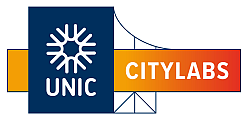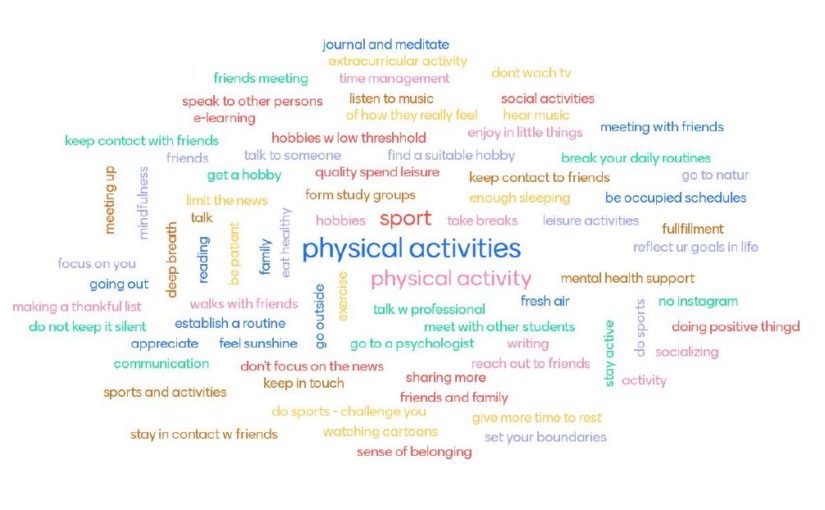On 9th of December students, scholars and staff members came together to learn and discuss how the pandemic has affected the mental health situation of students at different UNIC universities. The seminar was moderated and facilitated by Kathrin Schopf and Silvia Schneider, Department of Clinical Psychology and Psychotherapy, Ruhr University Bochum.
In the first part of the seminar, researchers from four UNIC universities presented their current research results, all related with mental health situations of young adults. Even if many aspects in their works; mainly from the fields of Psychology and Social Work; were similar, each of them offered a different perspective on the topic, contributing to an overall picture of the situation of students in the pandemic. Besides their research insights, all inputs included practical recommendations how to improve students’ mental health on an individual and collective way.
Linda Rajhvajn Bulat, University of Zagreb, showed that the biggest stressors for students during the pandemic have not been their own health worries but missed opportunities and social isolation. She strongly pled for more psychological support at universities and for more awareness in the faculties and by teachers for students’ mental health needs.
Estíbaliz Royuela Colomer, University of Deusto, highlighted the meaning of mindfulness for the mental health in the crisis and the danger of “auto-pilot”, which easily leads us to forget the potential of inner mental resources in difficult situations. Her interviews in schools clearly showed that positive emotion regulation strategies can make a huge different for life-quality of young people.
Ekin Çakır, Koc University, reported from the situation of students in Istanbul and confirmed the observation that future-related worries are often the main stressor of young people. This can be also related to economical worries as many students have lost their jobs during the crisis. Additionally, the collective character of the crisis might worsen the individual situation. Then when everybody is stressed, our personal resources to support each other might be more limited than in normal times.
Julia Brailovskaia, Ruhr University Bochum, focused on the role of social media for mental health issues in the crisis. Digital studying and working together with increased use of social media during the free time has become the new reality during the pandemic. This development has remarkable negative consequences on mental health of students. But as a moment of hope, her research results also showed that small changes in time-use and self-regulation are powerful methods to change the situation for better.
The second part of the seminar was dedicated to students’ perspectives. A mentimeter questionary collected and summarized opinions and experiences of attended students from the audience.
Patricija Biškup and Dario Topić, University of Zagreb, Ivan San Atilano Campillo and Laura Gómez González, University of Deusto and Yazgi Yilmaz, Ruhr University Bochum, all students at UNIC universities, presented some main problems as well as solutions from their point of view. They felt that students and young people generally were not heard equally to other groups in the society, which gave them the feeling that their worries – including the ones related to mental health – were not taken seriously. But also some positive sides of the pandemic – more time for the family and studying – were mentioned. The “Sense of Belonging” was identified as a very important source of good mental health. Even in an unclear situation of changing presence and online phases, it is important that universities continue to build spaces and ways to support this sense of belonging under changing conditions.
Find attached the presentations of the researchers as well as th results of the Mentimeter survey

